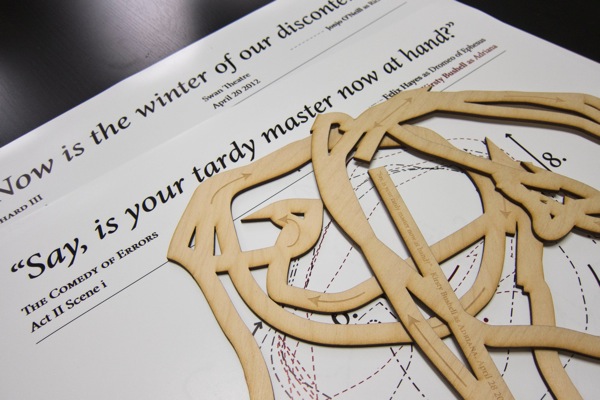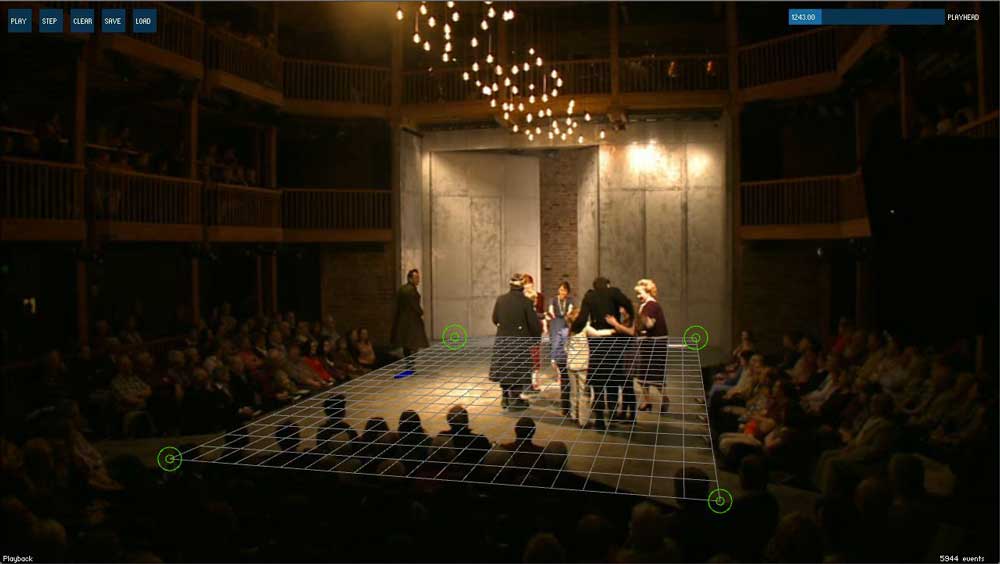-
"We were jealous of the younger kids in the one-to-one ward, because they had a PlayStation. It didn’t have the best games, but it had Micro Machines and Tomb Raider and it was better than what we had." I'd rather not quote anything other than the first line of this; you should just read it. A beautiful, haunting piece of writing from Mary Hamilton, about the things games can sometimes save us from (and sometimes can't). The kind of honesty you can't look away from, which is so hard to capture in writing, but which is here. Striking. (Trigger warning for self-harm).
-
"I think recognising this – when there is a path from a crisis that involves risk but rewards you hugely – with something you wouldn’t have imagined, is at the very heart of design. It’s certainly an incredible feeling when it works, when the judo-flip flows just so, and you end up somewhere brilliant." Yeah. I really, really need to trust that more when I feel it.
-
"Though adept at mathematics and engineering science, his inventions were all human-centred and focused on the experience and enjoyment of the user. He abandoned his design of a steam motorboat engine, for example, because once he had developed it to rival diesel power it lost its suppleness and "was not a nice thing any more". His car suspensions and the cycle developments were entirely aimed at providing a superior experience for the user. He was very taken, through his association with Bridgestone, with the Japanese sense of the "spirit" of an artefact, reflecting its origins and the care with which it was made. He liked the idea that by seeing and using something one can detect this "spirit", which fitted his own conviction that manufacture and industry are morally rewarding. "Man should make things … Make a profit, of course, but don't take the money gain as the prime judgment."" Great paragraph from this obituary of Alex Moulton.
-
Wonderful article about Hackney – and, specifically, a natural history of the borough as it is right now. The history of social housing throughout the area is particularly interesting; also, I found the distinction between "gentrification" and "yuppification" useful. Ignore the title – it is a meaty piece, with about 2% of it being about hipsters.
-
"…if any one of the participants at the meeting starts to deviate away from the subject, repeat themselves or get a little carried away with their topic, the "Scrum master" presents them with the baseball cap to wear – the idea being to "cap" the conversation at source! This indicates that the person presented with the cap is now prohibited to speak until asked to contribute again, or until the cap is passed to someone else during the course of the meeting." Iiinteresting.
-
"When we complain about Shoreditch changing, about it being too expensive to stay here any longer, we are echoing the complaints and weary jokes of all the combat-trousered webmasters and the cocky conceptual artists and the serious synth-poppers and the upholsterers and tailors and printers and showmen who have been here before us."
-
"An age of STEAM – Science, Technology, Engineering, Art and Mathematics – (rather than just STEM) is what the UK needs to survive in the foothills of the 21stC." Yes, that.
-
Executing entirely arbitrary code inside a Gameboy Color game using only the dpad and buttons – nothing else. Nuts.
Weeks 7-8
07 December 2012
No weeknote for Week 7; I was on holiday.
I came back straight into the thrust of Week 8, though: two pitches, a talk, and a bunch of meetings.
Wednesday itself was taken up with finishing writing, and then delivering, a talk for Radio 4’s Four Thought. This went very well in the end – and it should be on air around Christmas time. I’ll link to it when it’s available on iPlayer, of course.
Pitches went out on Wednesday and Thursday, one in conjunction with PAN, for the Playable City brief, and one with Caper; with any luck, I’ll be writing about them more in due course.
And then a Friday of meetings and post-holiday admin. Hitting the ground running, then, and with any luck, lining up a little more work before breaking for the holidays.
So, from a week off, straight in to a somewhat full-on week with typing. But: good things emerging, that I’ll write about more in due course.
-
This is remarkably detailed.
-
"“[Ive] has good taste.” He paused. “But more important than good taste, he has the ability to” — he points to the MacBook Air in front of me — “he’s true to the materials, to the medium he’s working in. One of my complaints about design of iOS is it’s doing things that aren’t true to the hardware.”"
-
"Rickshaw is a JavaScript toolkit for creating interactive time series graphs." This looks nice.
Week 6
23 November 2012
Week 6 began with a couple of days helping Alex with a workshop.
I also a spent a day with the fine folk of Pan exploring some pitch work – and it was lovely to just be in a space, working through ideas with them; they’re all good folk.
Squeezed into Wendesday was a day of writing: working up a draft for the Four Thought talk in just under two weeks.
Thursday saw the launch of Spirits Melted Into Air, a piece of work for the RSC that I’ve mentioned in passing (but not detail) in weeknotes a few times. It’s now live and in the world, and I’m really pleased with how it’s turned out; it’s nice to finally be able to show people a piece of work.
And now it’s Friday. I’m writing this from the back of economy on the way to the US, for a last-minute, spur-of-the-moment holiday – I’ll be in New York for the next week, taking some time to take stock, settle my head, and see the sights (and friends). Do say hello if you’d like to. I’m also going to take the time to perhaps write a little, and think about trajectories. But mainly, I’m going to eat, read, and have a bit of a holiday and an adventure.
New Work: Spirits Melted Into Air
22 November 2012
I’m excited to be able to share Spirits Melted Into Air with you: a two-week exploration I produced with the Royal Shakespeare Company, as part of their myShakespeare project.
The work is in parts a technology prototype, data visualisation, and artwork. Custom-built, open-source software is used to analyse performance video and generate plots of actors’ positions on stage from a perspective viewpoint. These plots are then used to generate new, secondary artworks: posters, and laser-cut wooden shapes.

The project emerged from an initial workshop and commission by Caper, where we explored various potential ways for technologists to collaborate with the RSC on short projects. From there, I dealt with the RSC direct, meeting key members of their team and understanding a bit more about the various factors influencing performances and productions there.
It was great to be able to take such a fluid, interpretative approach to the work. With hindsight, this was unsurprising: the RSC’s business is interpretation – taking Shakespeare and producing entirely new productions each year, of plays they have often performed countless times. My work was similarly interpretative: initially, building software to explore the data, and then exploring that data as a material – before moving onto the further material exploration of output formats. It’s the sort of structure to work that I’m fond of.

It was also great to have a brief to shape, and ultimately push myself: not just exploring a single technical idea, but seeing it through, end-to-end, to output and display. It was important to me that whatever came out of it – however prototype-y – was both beautiful and accessible. I think the output – especially the lasercuts – has stood up to that internal demand.
Thanks to Rachel and Kat at Caper for setting up the initial commission and the workshops; to Sarah and Ida, for producing the work from the RSC so superbly; and to everyone I met at the RSC who offered insight, ideas, and knowledge.
You can find out more at the Spirits Melted Into Air website.
And, if you’d like to know more about it, or indeed, to work with me on similar work – be it investigative, creative, or artistic – do get in touch.